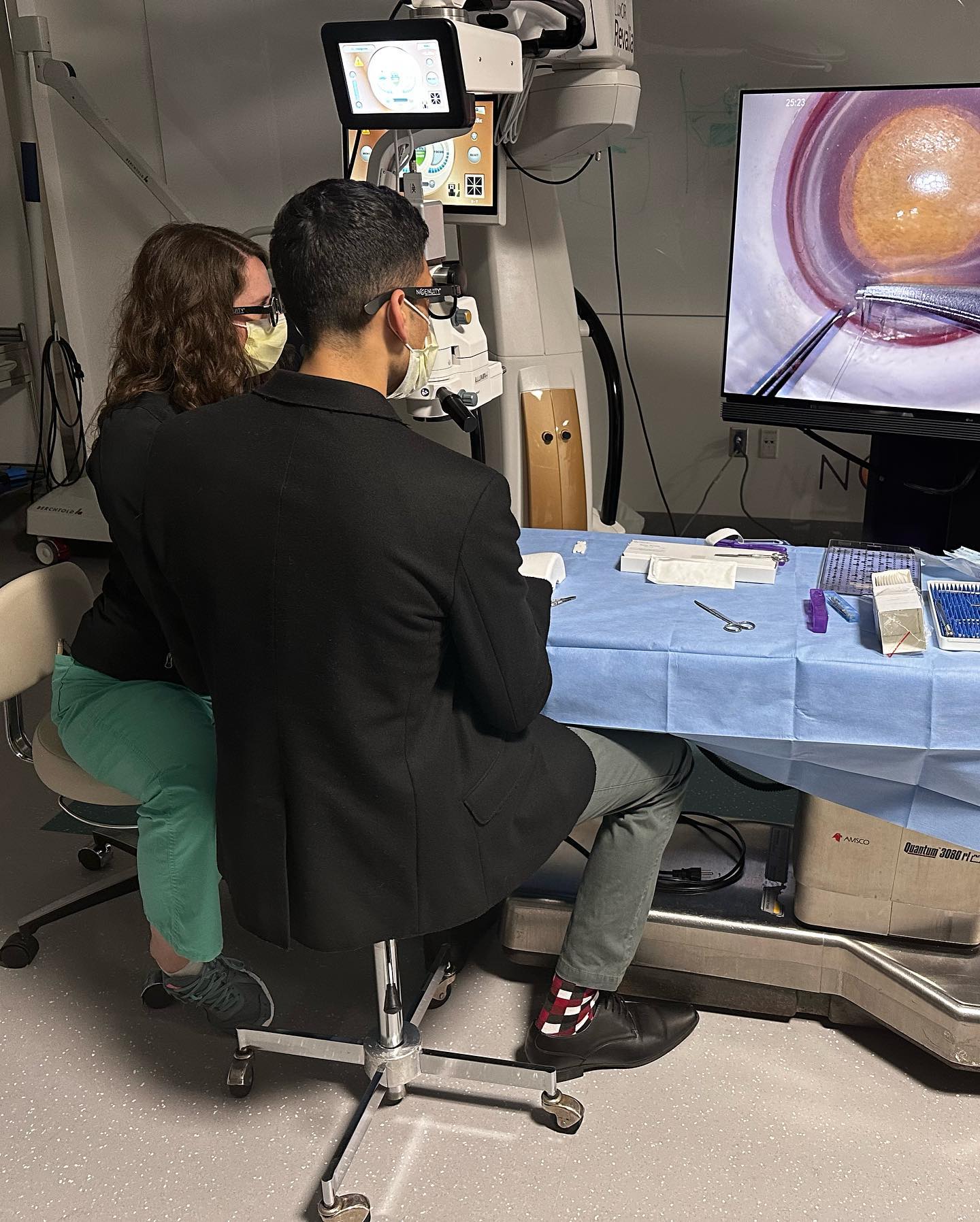Resident education has been a focus of the Department of Ophthalmology since it became its own department at Iowa, with Dr. Cecil Starling O'Brien as the first Chair of the Department in 1925. At the time, O’Brien’s three-year residency program accepted one resident per year. Today the Residency Program has expanded to accept six residents per year. One result of O’Brien’s focus on resident education was the creation of morning rounds, which continues today—although with a slightly different look since it became less feasible to go from bed to bed as the number of residents, fellows and faculty expanded.
 Another change that came about, and demonstrated the department’s continued focus on resident education, was the creation of the Residency Program Director position. Before Dr. Keith Carter became the first Residency Program Director in 1990, the Residency Program was one of the many responsibilities of the Chair of the Department. Carter led the program into the modern era including major changes in structure and curriculum. After Carter became the Department Chair on January 1, 2006, Dr. Tom Oetting took over as the second Residency Program Director.
Another change that came about, and demonstrated the department’s continued focus on resident education, was the creation of the Residency Program Director position. Before Dr. Keith Carter became the first Residency Program Director in 1990, the Residency Program was one of the many responsibilities of the Chair of the Department. Carter led the program into the modern era including major changes in structure and curriculum. After Carter became the Department Chair on January 1, 2006, Dr. Tom Oetting took over as the second Residency Program Director.
As Oetting stepped into the role of Residency Program Director, he inherited one of the most highly regarded programs in the country. Oetting sought to build significant relationships with students and to understand what would provide the most value for residents as they prepared to make an impact on the world of ophthalmology. Oetting developed a structured surgical curriculum that included simulation, parts of cases and formative feedback. Oetting developed a simulation facility at the VA that residents use in their early years which has led to less complications in early cases [1]. Over the years this approach caught on and is now the standard for residency surgical training in the United States. In part because of his leadership in surgical education Oetting received the inaugural ASCRS educator of the year award in 2021.
In 2015 Carter and Oetting led a national effort to update residency training. Their AAO/ACGME white paper proposed many changes including an integrated internship [2]. Quick to adopt their own recommendation the Iowa program created our current joint internship with the internal medicine program. The integrated internship adds significant ophthalmology training in the internship that complements the rest of the residency. "The reason it's such a big deal is that one-fourth of the training during residency is the internship, and we wanted some control over that time," Oetting explained. He added that our relationship with the Iowa Internal Medicine service has been outstanding. Now all US programs are mandated to have integrated or joint internships – Iowa’s program got a great head start.
The residency program continues to evolve and grow to this day. This past year Oetting passed the torch of Residency Program Director to Dr. Pavlina Kemp. Kemp came to this role after being awarded the American Academy of Ophthalmology's Secretariat Award for her world-class work in clinical education in 2020 and Carver College of Medicine M3 Teacher of the Year in 2021. She also just won the WIO Women in Ophthalmology Educator of the Year award in 2022. When asked what drew her to this role, Kemp said, "I've always wanted to be involved in education from the start. I really value the education and the mentorship that I received here at Iowa and being able to give back to this program is a big motivator for me. Advocating for the residents and being a part of their growth as ophthalmologists is very rewarding."
There are things that Kemp is planning for the program that will continue to add value for residents: "We’re working towards what's essentially a mini fellowship or advanced elective in certain fields where residents are able to tailor their residency to whichever career they've chosen. Whether their future practice environment requires them to do plastics procedures, to see children or have expertise in another sub-specialty, we want to focus on preparing our residents for their own unique careers. I think that's a huge opportunity."
References
Rogers GM, Oetting TA, Lee AG, Grignon C, Greenlee E, Johnson AT, Beaver HA, Carter K. Impact of a structured surgical curriculum on ophthalmic resident cataract surgery complication rates. J Cataract Refract Surg. 2009 Nov;35(11):1956-60.
Oetting TA, Alfonso EC, Arnold A, Cantor LB, Carter K, Cruz OA, Feldon S, Mondino B, Parke DW 2nd, Pershing S, Uhler T, Volpe NJ. Integrating the Internship into Ophthalmology Residency Programs: Association of University Professors of Ophthalmology American Academy of Ophthalmology White Paper. Ophthalmology. 2016 Sep;123(9):2037-41.